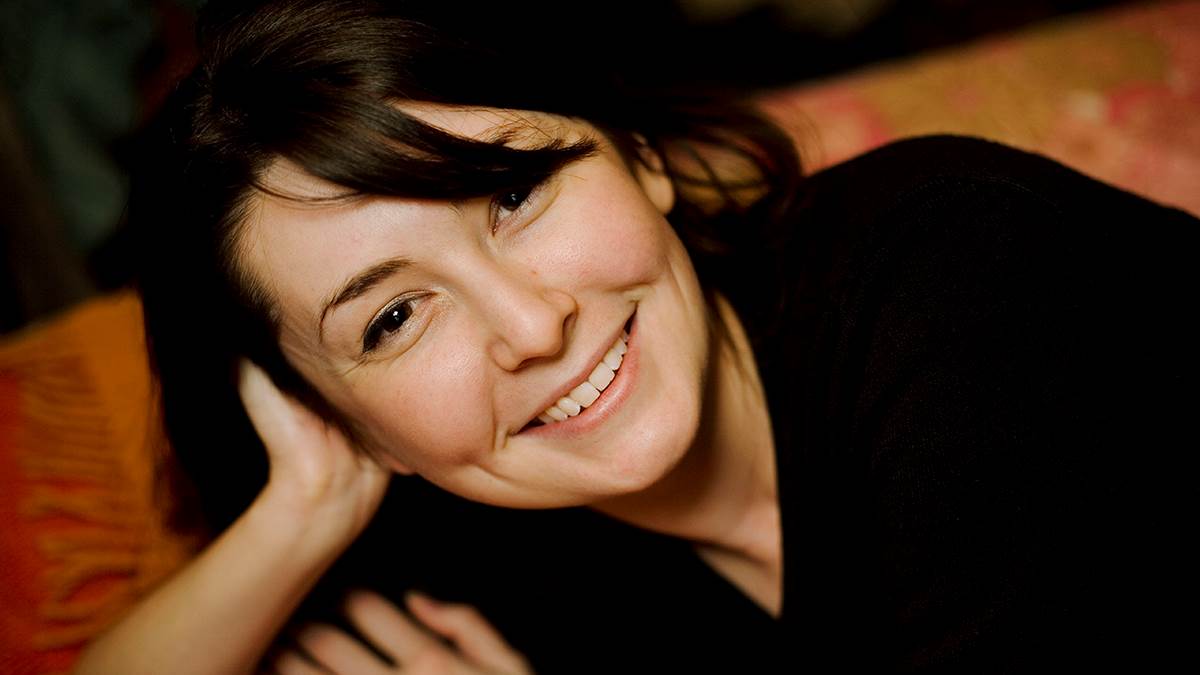Five-second secrets to being a writer, by Anna McKerrow
Author and BookTrust staff member Anna reveals the secrets every writer needs to know - and shares some exercises to help you out.

Actually, there's no need to read this article. I can reveal the two secrets of how to be a creative writer in five seconds. The two best things you can do are:
- Relax and do it
- Keep doing it.
That's most of it covered! But if you're one of the many people who find it hard to get started – and keep going – this article's for you.
Tip 1: Relax
Sometimes, people are so worried that their writing won't be good enough that they never actually start. So just aim to get your first thoughts down. Don't try to express everything perfectly. You can come back to it later and make it better.
Also, you don't have to have it all planned out and know everything before you start. Ideas will develop naturally as you write.
Tip 2: Practice
This is the 'keep doing it' bit. Don't be disappointed with anything you've written – think of it as loosening up your writing muscles! As with any skill, you have to practise to get better. Believe in yourself and keep going, and I guarantee you'll get more and more confident. Here are some fun ideas to get you started.
Exercises to try
I remember
Write 'I remember' at the top of a page. Now, in ten minutes, make a list of all the things you remember, from yesterday or 30 years ago. Go into detail with some. For instance, I might write:
- Boiled potatoes on Monday nights
- Sewing badges on my Brownie uniform
- The time it snowed so much it went up to my knees. We had gone out to go to the shops but we had to turn back because we were too cold
- My granny's hair
- Watching EastEnders with Sara
- My wedding day
The aim is to exercise your memory and start getting ideas for a story. Stories are often about small things. And because it happened to you, it should be believable and interesting.
Using photos
Look at your photo albums for pictures of an event that means something to you. Take them out and really look at them. Are there details you'd forgotten? If it's a black and white photo, try to remember what the colours were. Who else is in the photo?
Messy maps
Got an idea for a story but not sure how to develop it? A good solution is to draw a messy map of all your random thoughts on the subject. Write everything you can think of on a piece of paper. It might just be odd words here and there, written inside boxes or bubbles.
It's easier to see where to start when you've got all your ideas onto a page, and you don't forget any important bits either.
Character writing
Great stories are often about great characters. To get a feeling of what a character I am creating is all about, I like to make a collage from old magazines and newspapers.
Find pictures of things like:
- How they might look
- The car they might drive
- The sister they might have
- The food they might like to eat
You don't have to include a sister or the type of car they drive in your story. The point is to feel that you know your character as if they were a real person.
What happens?
People wanting things is what makes things happen, in life as well as stories. So think about your characters.
- What might they want?
- How will they get it?
- What might stand in their way?
- How will they overcome that obstacle? Will they overcome it?
When you've answered these questions, you've got the outline of what happens in your story.
Use your senses
It's natural to write what we can see in our mind's eye, but we don't always think about what we might smell, hear, feel or taste.
Take a few minutes to notice what's going on around you, with all your senses. What background noises can you hear? What smells can you detect? How does your clothing feel?
Using your senses in this way makes your writing richer, and helps bring the reader into your story.
The power of objects
Many mature people have saved something from the past. For instance, an uncle or grandfather may have a tool in the shed that belonged to his father. To a child growing up now, that tool is part of history – their history.
Why not search round the house to see what you can find? Perhaps you have an old coin hidden away in a drawer. Or a wooden clothes peg, a piece of material, an old button... They're all proof of times past, and you can weave your stories around them.
And finally...
Everyone has a story to tell, and yours are as real and good as the next person's. Writing is fun – relax and enjoy it!
